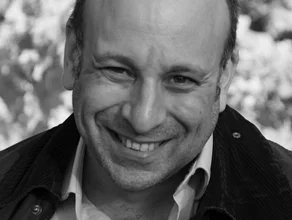We need their vote
We need their vote


In the 2026 parliamentary elections, Lebanon’s vast diaspora must be allowed to vote in the same way as their compatriots at home. It’s that simple.
They deserve full voting rights, and this is why The Beiruter is adding its voice to the already thundering chorus across the various media that demands an amendment to the electoral law to make this happen.
The alternative, six MPs from six continents, which is the preferred mechanism of Amal, Hezbollah, and the Free Patriotic Movement, has been firmly rejected by the Maronite League, Bkirki, the Kataeb and the Lebanese Forces, as “infringing on the principle of equality among all citizens.”
Because, let’s face it, after yet another tumultuous period in their short but chequered history, the Lebanese people, all Lebanese people, have another opportunity to advance the quality of their democratic aspirations and return a parliament that genuinely works for the people and contributes to the building of a strong, united, prosperous and peaceful state.
A diaspora like no other
For millennia, the Lebanese have had to seek opportunities elsewhere, either because of war, instability, or hardship. The Phoenicians were the first, and they haven’t looked back. At the end of the 19th century, the Lebanese, by now under a waning Ottoman rule, boarded boats in search of a better life, in many cases not knowing where they would end up. For many, it was the U.S. via Ellis Island; others went to Brazil, and a few more ended up in Australia and South Africa. The 1975-90 civil war saw another generation leave in droves, following well-trodden paths to North America and the Antipodes.
They may be scattered far and wide, but they punch above their weight. It is not by accident that Lebanon has a reputation for producing some of the smartest people on earth.
They have a vast wealth of knowledge and lived experience that they bring to the ballot box.
Plus, by and large, they love their country. They should not be denied a say in the running of a country by the very people whose generational, self-serving policies and war mongering forced many of them to immigrate in the first place.
Nation builders
Their economic contributions alone earn them a place at the table. Expat remittances represent a staggering 30 percent of our paltry GDP*. During the 2019 financial crisis, when the Lebanese pound was annihilated, they threw Lebanon a crucial lifeline at a time when a few hundred dollars from a family member living abroad meant the difference between eating and not eating. But even before the crash, expat money was a nation builder, paying for or at least contributing to, education, healthcare, and day-to-day living.
Crucially, the Diaspora lives in societies where public servants actually serve, where they are answerable to those who voted them in, and where they can lose their job or even go to jail if they abuse their power.
The Diaspora is aware of best practices; it takes for granted that for which most Lebanese are grateful - infrastructure, law and order, environmental awareness, transparency, and accountability.
And maybe this is why Amal, Hezbollah, and the FPM are resisting the move, that part of the political class that would appear to prefer its electorate to be obedient and fall into line. The Diaspora vote comes with higher expectations and this makes them a nuisance. Much better if they just came on holiday and continued to send in money, topping up where the state has fallen short, isn’t it?
The Diaspora participation can help drag the Lebanese political process into the modern age. It will force politicians to be mindful of a powerful bloc that lies beyond our shores, one that is wealthy, educated, and free-thinking.
The Diaspora has stepped up time and time again when Lebanon has called on it. Surely they deserve a say in what could be a very exciting future.
* World Bank's Lebanon Economic Monitor (LEM) 2023


